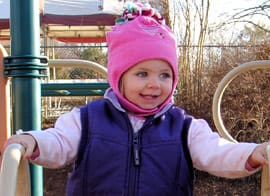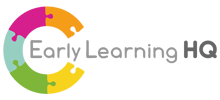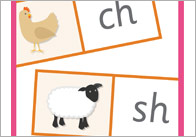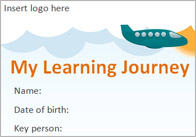Preparing for your Ofsted Inspection – Areas of Focus for EYFS Providers

The current Ofsted inspection framework for providers of the EYFS in all early years’ settings (with the exceptions of schools which follow a different inspection framework) has a number of key features. If you are aware of what these are, reflect on how well you promote them and have strong evidence at the ready to prove this, you stand a better chance of doing well in your inspection. So take a few moments to think about how effective your practice is in these key areas:
The characteristics of effective learning
Inspectors will look for evidence that children display the characteristics of effective learning: their ability to play and explore, to actively learn and to create and think critically. Children will develop these as a result of consistently good teaching and a well-planned, stimulating environment. Use these reflective questions to think how you achieve this.
– How well engaged are children in their play and learning?
– Do all areas of the environment and curriculum really stimulate children to find out and explore?
– How well motivated are they and what do you provide to help children to keep trying?
– What activities do you provide to build children’s concentration?
– How do you help children to create and think critically?
– What opportunities do children have to express their own ideas (through creative arts, music, story-telling, conversation) rather than following ideas pre-set by adults?
– How do you encourage children to plan their own ways of doing things and to solve problems in their play and learning?
Partnership working
All providers are expected to work in partnership with parents, other agencies, professionals or early years’ settings in order to ensure the needs of individual children are met and their transitions between different settings are smooth. Ask yourself these reflective questions:
– What arrangements do you have to settle children into your setting and how do you use information gathered from parents or other settings to plan for children’s learning and their well-being?
– How do you share information with parents about their children’s learning (as opposed to their daily routines and personal care) and involve them in supporting their children’s learning and development at home? What do you do to engage those parents who are less motivated to support their children’s learning? Consider using a case study to talk about with the Ofsted inspector.
– How do you prepare children for making transitions? This might be within your setting as children move between different rooms, or helping prepare them for the move to pre-school, nursery or school. Think about how you prepare children emotionally for this change and how you equip them with the necessary skills for life, such as independence, cooperation and positive behaviour.
– What relationships have you established with other early years settings that children attend or are due to move on to, and how do you share information with them to support continuity in learning?
– If a Progress check at age two has been made by another early years provider, what do you know about it and how do you use this information?
– How do you seek advice and put in place support for those children with special educational needs, disabilities or English as an additional language to ensure their rates of progress are comparable with other groups of children?
Observation, Assessment and Planning
You will need to demonstrate that you know and understand each child’s learning and development needs well and that you use this knowledge to identify children’s next steps in learning and plan for their future progress. This is usually demonstrated through your learning records for each child and through discussion with the key person. Remember that childminders are not required to keep written observations, assessments and plans, contrary to what many believe! In reality though, many do keep some sort of learning journal as evidence of the progress that children make. Consider these questions:
– How can you demonstrate that each child has made good or outstanding progress as a result of your contributions and support?
– In group settings there should be a system used by management to monitor and track the progress that all children make. How effective is your system? How do you monitor all staff/key persons to ensure they plan effectively for their children?
– How do your plans reflect the interests and learning needs of individual children, as well as the group as a whole?
– If you are a childminder caring for children of different ages together, how do you plan your daily routines and activities in order to ensure their individual needs are met and their interests considered?
– What consideration do you give to children’s preferred learning styles when planning for their learning? Eg, how do you support those children who prefer physical activity or to be outside?
Self-evaluation
An effective and robust self-evaluation process is essential in order to be graded Good or better. Being reflective is a key element of effective self-evaluation. By critically questioning all aspects of your practice, including those areas highlighted in this article, you should be able to identify and plan for some priorities for improvement. There are many different systems, processes and tools – it is not just filling out a self-evaluation form – that contribute to effective self-evaluation. These might include any number of internal and external audits, local authority ratings, quality assurance schemes, to name but a few.
Inspectors will need evidence that, whatever methods you use, you can demonstrate that you have accurately identified priorities for improvement based on the needs of your service users, and from these have drawn up plans showing how you will achieve your goals.
Further Information
Further information can be found in Ofsted’s publication ‘Evaluation schedule for inspections of registered early years provision’ (published July 2012, reference 120086). This clearly sets out what inspectors report on and how judgments are reached. It is a really useful tool to use when reflecting on your own practice and planning for future improvements. You may also find ‘Are you ready for your inspection?’ (published August 2012, reference 120085) a useful publication. Both of these are available from the Ofsted under the resources link.
Hilary is an independent early years consultant and freelance early years inspector. She has extensive experience as a practitioner, advisor and as an Ofsted inspector. She offers consultancy advice and support to the whole range of early years settings, including childminders, pre-schools and day nurseries. Hilary can be contacted at www.earlyyearssuccess.co.uk
Popular Teaching Resources
Stay Up To Date
Sign up for our newsletter and we’ll let you know when we create new early years resources.





